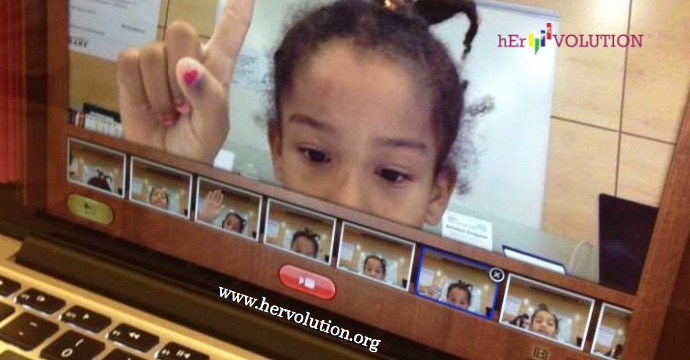Coronavirus has saturated the media landscape over the past several months, impacting communities and individuals on both large and small scales. It is evident the impact that this virus is having on the most vulnerable populations in Canada, however, given the immediate healthcare challenges, not much of the discussion has turned to long term impact on vulnerable populations beyond the coming months.
We have found, through working with high school-aged women in the GTA, that 1 in 4 do not have access to a computer at home – a fact that is particularly damaging to universal and equitable access to education given that all classes have moved to online forums and classrooms for the foreseeable future. Statistics Canada reports that 19% of Canadians do not have access to hardware, which includes computers and that 28% of Canadians find internet access to be costly.
Although we live in Canada, one of the wealthiest countries in the world, it is a surprising fact to learn that a high volume of our population does not have a computer or internet at home, or both. And these statistics were all before the pandemic and the dramatically worsening economic situations in homes across the country. Knowing that millions of people are unable to work or have lost their jobs means that it will become increasingly challenging for greater numbers of our populations to continue to access the internet and computers.
We know first-hand, from running programs with teens, the importance of access to computers and the internet in the home. All of the students who have attended our programs in the past have shown up without laptops. This was a lesson for us as we started offering programs, that in order to provide effecting programming for underserved communities, we must first start with giving access to technology like smartphones and laptops. Because we learned this lesson early on, we began working with companies such as Salesforce and Shopify to help provide laptops for girls in the GO!stem and STEMing UP programs. Furthermore, we partnered with Sky’s The Limit Youth Organization to help donate laptops for the STEM summer programs. These solutions work well when students are able to take the devices and go to public libraries to access the internet should they not have the internet at home, however, this is not the case during a pandemic when isolation is mandatory and crucial to one’s well-being.
Over the past month of the COVID-19 pandemic, we have learned that school boards are not future thinkers and haven’t been able to adopt online learning and incorporate technology as we would have expected in the 21st century. We need to ask ourselves why our economy is driven by technology, however, school boards are woefully unprepared to teach online. Where is the resistance? Even if online learning is in place and functioning how are schools prepared to overcome the high barrier to access that exists for so many Canadian families.
The question that I have been considering over the past few weeks is: how can we be comfortable with developing online learning tools when we know that it is not all created equally? And more importantly, how can we be okay with offering these online classes when it leaves the most vulnerable and underserved Canadians with no way to access these online tools. Our work has turned to create desperately needed solutions to these evolving challenges.
It is clear now, that more funding is needed to allow equitable access to technology and the internet for vulnerable populations. We know that we have to work harder and are preparing to pivot our strategic focus towards creating chances for students to access online learning that is high quality and engaging. It is clear that we need to focus our attention towards inspiring future generations of women to become leaders in health care, technology, the environment, and the economy and that can only be done if they have access to technology and online education now.

